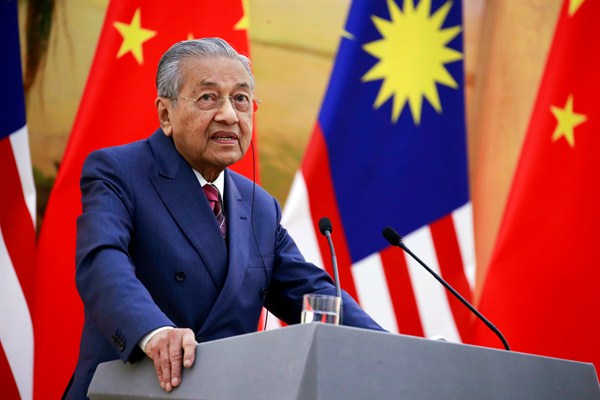The shock election of 93-year-old Mahathir Mohamad for a second stint as Malaysia’s prime minister last May generated a sense of unease in the corridors of power in Beijing. In tough rhetoric on the campaign trail, Mahathir had accused his predecessor, Najib Razak, of ceding Malaysia’s sovereignty to China by accepting billions of dollars in Chinese loans to finance large-scale infrastructure projects. Mahathir warned that Malaysia’s “freedom would be affected if we are going to owe such a large sum to any one country,” and he voiced fears that Najib appeared willing to “give up” the nation’s territorial claims in the South China Sea.
Since taking office, Mahathir has made Beijing more nervous. In August, he suspended two major Chinese-financed infrastructure projects that are central to its ambitious Belt and Road Initiative: the $20 billion railway running down the Malay peninsula, dubbed the East Coast Rail Link, and a $2.3 billion gas pipeline set to run through northern Borneo. Mahathir has also spoken out forcefully over Chinese assertiveness in the South China Sea, saying warships should not be stationed in contested waterways and warning of the potential for conflict if militarization continues.
With the United States largely pulling back from Southeast Asia under President Donald Trump, who immediately withdrew from the Trans-Pacific Partnership and has favored protectionist measures over U.S. engagement abroad, does Mahathir represent the last bulwark against China’s grand regional ambitions?

